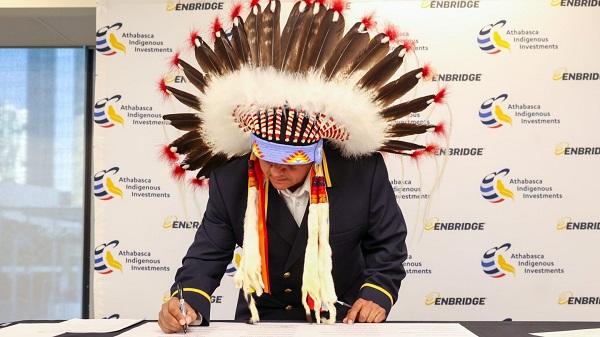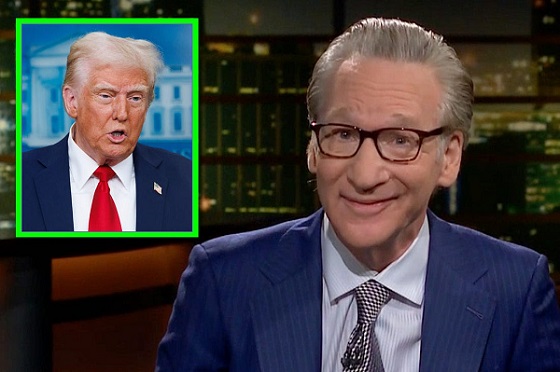Uncategorized
Trump’s Thanksgiving menu includes turkey and grievances

PALM BEACH, Fla. — President Donald Trump used a Thanksgiving Day call to troops deployed overseas to pat himself on the back and air grievances about the courts, trade and migrants heading to the U.S.-Mexico border.
Trump’s call, made Thursday from his opulent private Mar-a-Lago club, struck an unusually political tone as he spoke with members of all five branches of the military to wish them happy holidays.
“It’s a disgrace,” Trump said of judges who have blocked his attempts to overhaul U.S. immigration law, as he linked his efforts to secure the border with military missions overseas.
Trump later threatened to close the U.S. border with Mexico for an undisclosed period of time if his administration determines Mexico has lost “control” on its side.
The call was a uniquely Trump blend of boasting, peppered questions and off-the-cuff observations as his comments veered from venting about slights to praising troops — “You really are our heroes,” he said — as club waiters worked to set Thanksgiving dinner tables on the outdoor terrace behind him. And it was yet another show of how Trump has dramatically transformed the presidency, erasing the traditional divisions between domestic policy and military matters and efforts to keep the troops clear of politics.
“You probably see over the news what’s happening on our southern border,” Trump told one Air Force brigadier general stationed at Bagram Airfield in Afghanistan, adding: “I don’t have to even ask you. I know what you want to do, you want to make sure that you know who we’re letting in.”
Later, Trump asked a U.S. Coast Guard commander about trade, which he noted was “a very big subject” for him personally.
“We’ve been taken advantage of for many, many years by bad trade deals,” Trump told the commander, who sheepishly replied that, “We don’t see any issues in terms of trade right now.”
And throughout, Trump was sure to congratulate himself, telling the officers that the country is doing exceptionally well on his watch.
“I hope that you’ll take solace in knowing that all of the American families you hold so close to your heart are all doing well,” he said. “The nation’s doing well economically, better than anybody in the world.” He later told reporters “nobody’s done more for the military than me.”
Indeed, asked what he was thankful for this Thanksgiving, Trump cited his “great family,” as well as himself.
“I made a tremendous difference in this country,” he said.
But Trump continued to warn about the situation on the southern border as he took questions from reporters, pointing to the caravans of Central American migrants that have been making their way toward the U.S. and warning that, “If we find that it gets to a level where we lose control or people are going to start getting hurt, we’re going to close entry into the country for a period of time until we get it under control.”
He said he had the authority to do so by executive order and claimed he’d already used it earlier this week. “Two days ago, we closed the border. We actually just closed it, said nobody’s coming in because it was just out of control.”
By no means did he seal the border with Mexico. Officials did shut down one port of entry, San Ysidro, in California, for several hours early Monday morning to bolster security because of concerns about a potential influx of migrant caravan members. They closed northbound lanes into the U.S. and reopened most of them before the morning rush.
Trump’s border threat came days after a federal judge put the administration’s attempts to overhaul asylum rules on hold. Courts have also blocked several versions of the president’s travel ban as well as his attempt to end a program that allows young immigrants brought to the country illegally as children to live and work in the country.
Trump probably could close the entire southern border by order, at least temporarily, invoking national security powers. But doing so could cause extraordinary damage to bilateral relations as well as to cross-border commerce between the U.S. and Mexico, its third largest trading partner. It would not necessarily stop migrants from coming either; Trump would have to contend with the same asylum laws already vexing his efforts to harden the border.
Among other subjects the president touched on in his question-and-answer session with the press:
—Trump disputed reports the CIA has concluded that Saudi Arabia’s crown prince was responsible for journalist Jamal Khashoggi’s killing. “The CIA points it both ways,” said Trump. “Maybe he did, maybe he didn’t.”
—Asked who should be held responsible for killing, Trump responded that, “Maybe the world should be held accountable ’cause the world is a vicious place.”
—Trump said he’d be interviewing candidates for potential openings in his administration — but wouldn’t say for what positions.
“I’m very happy with my Cabinet and the people working for me and for us. … They’re absolute stars.” But, he said, “there’s always a lot of change. I’ll probably be changing a couple.”
—Trump would not discount the possibility of a partial government shutdown over lawmakers’ refusal to allocate billions of dollars for his promised border wall. “Could there be a shutdown? There certainly could, and it will be about border security, of which the wall is a part,” Trump said
—Trump said he’d spoken with his daughter Ivanka following news she’d sent hundreds of emails from a private address while serving as a senior White House adviser. Trump said she was “very innocent” and that situation was very different from the one he’s said his 2016 rival Hillary Clinton should be in jail for.
—He defended his acting attorney general, Matthew Whitaker, calling him “a highly respected person” whom the press had treated nastily.
—He complained about the military’s use of new electromagnetic catapult technology instead of steam in the new Navy aircraft carriers, telling a Navy officer that, “unfortunately, you have to be Albert Einstein to really work it properly.” The officer rebuffed him. “You sort of have to be Albert Einstein to run the nuclear power plants that we have here as well. But we’re doing that very well,” he said, advising the president to “go electromagnetic.”
Trump later
He and his family capped the day with several hundred dues-paying members and their guests at a Thanksgiving feast in Mar-a-Lago’s opulent ballroom that included the usual fixings, along with chilled seafood, Chilean sea bass and braised short ribs.
___
Associated Press writer Colleen Long in Washington contributed to this report.
___
Follow Colvin on Twitter at https://twitter.com/colvinj
Jill Colvin, The Associated Press
Uncategorized
Poilievre on 2025 Election Interference – Carney sill hasn’t fired Liberal MP in Chinese election interference scandal

From Conservative Party Communications
“Yes. He must be disqualified. I find it incredible that Mark Carney would allow someone to run for his party that called for a Canadian citizen to be handed over to a foreign government on a bounty, a foreign government that would almost certainly execute that Canadian citizen.
“Think about that for a second. We have a Liberal MP saying that a Canadian citizen should be handed over to a foreign dictatorship to get a bounty so that that citizen could be murdered. And Mark Carney says he should stay on as a candidate. What does that say about whether Mark Carney would protect Canadians?
“Mark Carney is deeply conflicted. Just in November, he went to Beijing and secured a quarter-billion-dollar loan for his company from a state-owned Chinese bank. He’s deeply compromised, and he will never stand up for Canada against any foreign regime. It is another reason why Mr. Carney must show us all his assets, all the money he owes, all the money that his companies owe to foreign hostile regimes. And this story might not be entirely the story of the bounty, and a Liberal MP calling for a Canadian to be handed over for execution to a foreign government might not be something that the everyday Canadian can relate to because it’s so outrageous. But I ask you this, if Mark Carney would allow his Liberal MP to make a comment like this, when would he ever protect Canada or Canadians against foreign hostility?
“He has never put Canada first, and that’s why we cannot have a fourth Liberal term. After the Lost Liberal Decade, our country is a playground for foreign interference. Our economy is weaker than ever before. Our people more divided. We need a change to put Canada first with a new government that will stand up for the security and economy of our citizens and take back control of our destiny. Let’s bring it home.”
Uncategorized
Canada Needs A Real Plan To Compete Globally

From the Frontier Centre for Public Policy
Ottawa’s ideological policies have left Canada vulnerable. Strategic action is needed now
As Canada navigates an increasingly complex geopolitical landscape, the next federal government must move beyond reflexive anti—Americanism regardless of its political leanings. Instead, Canada should prioritize national interests while avoiding unnecessary conflict and subservience.
The notion that Canada can stand alone is as misguided as the idea that it is only an economic appendage of the United States. Both perspectives have influenced policy in Ottawa at different times, leading to mistakes.
Rather than engaging in futile name-calling or trade disputes, Canada must take strategic steps to reinforce its autonomy. This approach requires a pragmatic view rooted in Realpolitik—recognizing global realities, mitigating risks, governing for the whole country, and seizing opportunities while abandoning failed ideologies.
However, if Washington continues to pursue protectionist measures, Canada must find effective ways to counteract the weakened position Ottawa has placed the country in over the past decade.
One key strategy is diversifying trade relationships, notably by expanding economic ties with emerging markets such as India and Southeast Asia. This will require repairing Canada’s strained relationship with India and regaining political respect in China.
Unlike past Liberal trade missions, which often prioritized ideological talking points over substance, Canada must negotiate deals that protect domestic industries rather than turning summits into platforms for moral posturing.
A more effective approach would be strengthening partnerships with countries that value Canadian resources instead of vilifying them under misguided environmental policies. Expand LNG exports to Europe and Asia and leverage Canada’s critical minerals sector to establish reciprocal supply chains with non-Western economies, reducing economic reliance on the U.S.
Decades of complacency have left Canada vulnerable to American influence over its resource sector. Foreign-funded environmental groups have weakened domestic energy production, handing U.S. industries a strategic advantage. Ottawa must counter this by ensuring Canadian energy is developed at home rather than allowing suppressed domestic production to benefit foreign competitors.
Likewise, a robust industrial policy—prioritizing mining, manufacturing, and agricultural resilience—could reduce dependence on U.S. and Chinese imports. This does not mean adopting European-style subsidies but rather eliminating excessive regulations that make Canadian businesses uncompetitive, including costly domestic carbon tariffs.
Another key vulnerability is Canada’s growing military dependence on the U.S. through NORAD and NATO. While alliances are essential, decades of underfunding and neglect have turned the Canadian Armed Forces into little more than a symbolic force. Canada must learn self-reliance and commit to serious investment in defence.
Increasing defence spending—not to meet NATO targets but to build deterrence—is essential. Ottawa must reform its outdated procurement processes and develop a domestic defence manufacturing base, reducing reliance on foreign arms deals.
Canada’s vast Arctic is also at risk. Without continued investment in northern sovereignty, Ottawa may find itself locked out of its own backyard by more assertive global powers.
For too long, Canada has relied on an economic model that prioritizes federal redistribution over wealth creation and productivity. A competitive tax regime—one that attracts investment instead of punishing success—is essential.
A capital gains tax hike might satisfy activists in Toronto, but it does little to attract investments and encourage economic growth. Likewise, Ottawa must abandon ideological green policies that threaten agri-food production, whether by overregulating farmers or ranchers. At the same time, it must address inefficiencies in supply management once and for all. Canada must be able to feed a growing world without unnecessary bureaucratic obstacles.
Ottawa must also create an environment where businesses can innovate and grow without excessive regulatory burdens. This includes eliminating interprovincial trade barriers that stifle commerce.
Similarly, Canada’s tech sector, long hindered by predatory regulations, should be freed from excessive government interference. Instead of suffocating innovation with compliance mandates, Ottawa should focus on deregulation while implementing stronger security measures for foreign tech firms operating in Canada.
Perhaps Ottawa’s greatest mistake is its knee-jerk reactions to American policies, made without a coherent long-term strategy. Performative trade disputes with Washington and symbolic grandstanding in multilateral organizations do little to advance Canada’s interests.
Instead of reacting emotionally, Canada must take proactive steps to secure its economic, resource, and defence future. That is the role of a responsible government.
History’s best strategists understood that one should never fight an opponent’s war but instead dictate the terms of engagement. Canada’s future does not depend on reacting to Washington’s policies—these are calculated strategies, not whims. Instead, Canada’s success will be determined by its ability to act in the interests of citizens in all regions of the country, and seeing the world as it is rather than how ideological narratives wish it to be.
Marco Navarro-Génie is the vice president of research at the Frontier Centre for Public Policy. With Barry Cooper, he is co-author of Canada’s COVID: The Story of a Pandemic Moral Panic (2023).
-

 espionage1 day ago
espionage1 day agoEx-NYPD Cop Jailed in Beijing’s Transnational Repatriation Plot, Canada Remains Soft Target
-

 Business2 days ago
Business2 days agoDOGE Is Ending The ‘Eternal Life’ Of Government
-

 2025 Federal Election2 days ago
2025 Federal Election2 days agoCanada drops retaliatory tariffs on automakers, pauses other tariffs
-

 2025 Federal Election2 days ago
2025 Federal Election2 days agoTucker Carlson Interviews Maxime Bernier: Trump’s Tariffs, Mass Immigration, and the Oncoming Canadian Revolution
-

 Daily Caller1 day ago
Daily Caller1 day agoDOJ Releases Dossier Of Deported Maryland Man’s Alleged MS-13 Gang Ties
-

 2025 Federal Election1 day ago
2025 Federal Election1 day agoAllegations of ethical misconduct by the Prime Minister and Government of Canada during the current federal election campaign
-

 John Stossel1 day ago
John Stossel1 day agoClimate Change Myths Part 1: Polar Bears, Arctic Ice, and Food Shortages
-

 2025 Federal Election1 day ago
2025 Federal Election1 day agoBREAKING from THE BUREAU: Pro-Beijing Group That Pushed Erin O’Toole’s Exit Warns Chinese Canadians to “Vote Carefully”








